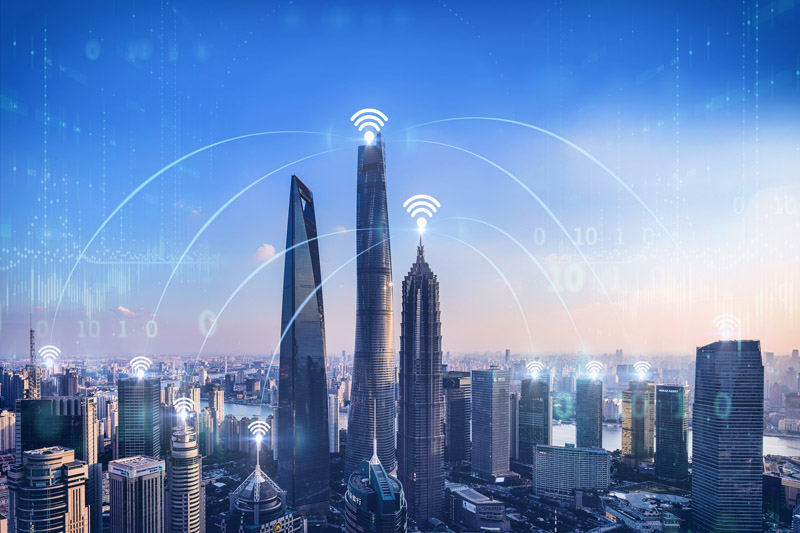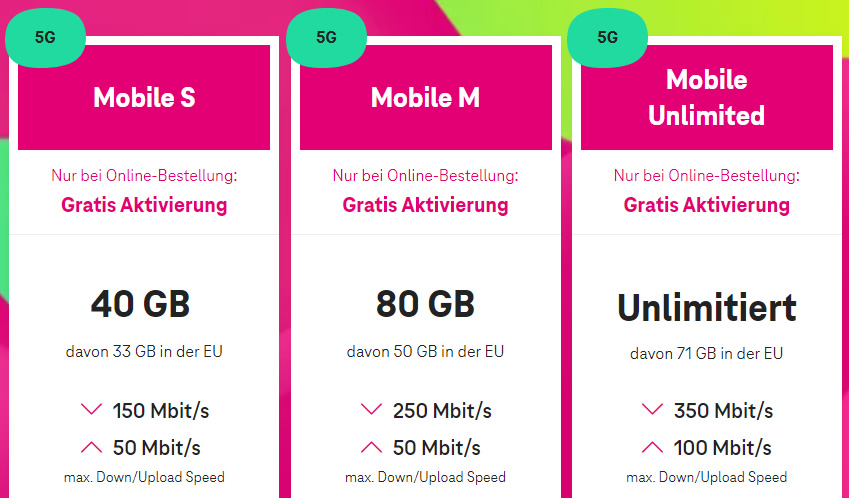Is the time ripe for "speed experience billing" of 5G multi-dimensional billing?

Is the time ripe for "speed experience billing" of 5G multi-dimensional billing?

During the 2023 MWC Shanghai, the just-held mobile communication industry benchmarking conference, on July 5 , "5G business success" became one of the core topics. Industry leaders participating in the meeting generally believed that the global 5G commercialization has been in use for 4 years, and the development speed far exceeds the same period of 4G. value and social value.
The consumer market has always been the basic market for operators. In the 5G era, traffic is exploding, and traffic value management for the mass market is the key to operators' commercial success. Data show that as of March 2023, 252 network operators in 92 countries or regions around the world have announced that they have started to provide 5G services, and 5G networks have covered 30.2% of the world's population. Among them, 53 countries or regions have 5G network population coverage of more than 50%, and the leading operators have cashed in the first wave of 5G dividends.
Mobile communication has been in the generation for ten years, and now 5G, which has been in commercial use for four years, has entered the "young and middle-aged" period. As the proportion of 5G network traffic becomes mainstream and continues to rise, what is the focus of 5GtoC traffic value management in the new era? Is it time to start the multi-dimensional billing that operators have imagined since the beginning of 5G commercial use-especially the "rate experience billing"? Let's find out.
Looking at the status quo: traffic anxiety has generally disappeared, and "network speed sensitivity" has become a new pain point
According to statistics from the Ministry of Industry and Information Technology, driven by 5G, my country's mobile Internet traffic reached 117.3 billion GB from January to May this year, a year-on-year increase of 14.2%. As of the end of May, the number of mobile Internet users in my country reached 1.489 billion, a net increase of 34.73 million compared with the end of the previous year; the average mobile Internet access traffic (DOU) per household in May reached 17.26GB/household·month, a year-on-year increase of 10.8%. In December last year, it was 1.08GB/household·month higher.
The number of users here is calculated based on the number of terminals. Considering that many people have multiple terminals, the per capita DOU is actually far higher than the above figures. This means that 5G has brought people's average monthly traffic consumption into the era of 10GB~100GB, and traffic anxiety can be said to have generally disappeared. In real life, it is not difficult to find that 5G users have long lost the habit of "asking for the Wi-Fi password when entering the door", but instead use "5G devices as personal hotspots" anytime, anywhere.
Instead, "Internet speed sensitivity" is becoming the new pain point! On the one hand, as the scale of 4G users shifts to 5G, the capacity of 4G is vacated, and the public does not feel that the 5G network is significantly faster than 4G in daily use. On the other hand, in high-density scenarios such as airport stations, large-scale exhibitions, and press conferences, users not only cannot feel the speed of 5G, but are easily congested to the point that it is difficult to even update the "Moments".
When blindly increasing the "quantity" of traffic is no longer effective, it becomes urgent to improve the "quality" of traffic.
Observing the market: Overseas operators try first, and the speed experience and billing are preliminarily proved
A higher rate is a basic feature that distinguishes 5G from 4G - 4G's maximum download rate can reach 100Mbps, while 5G can provide a downlink rate of up to Gbps, which provides operators with differentiated pricing while ensuring users' basic network speed experience. possibility. During the 2023 MWC Shanghai, the 5G Application Industry Forum of the Academy of Information and Communications Technology and GSMA 5G IN jointly released the "5G Business Model Innovation and Development White Paper (2023)", which demonstrated the new exploration of leading operators in 5G billing methods in the mass consumer market.
Elisa in Finland is one of the earliest operators to adopt speed as a billing metric. Its basic 5G package is divided into three speed levels of 300Mbps, 600Mbps, and 1000Mbps, and the monthly rental fee ranges from 31.99 euros to 49.99 euros. When the user is using within the Nordic region, the third-tier package has unlimited traffic; when the user is using across the European Union, the monthly traffic limit ranges from 32GB to 45GB, realizing the combination of the rate grading experience and the traffic package package.
 5G Application Industry Matrix and GSMA 5G IN.jpg
5G Application Industry Matrix and GSMA 5G IN.jpg
(Source: 5G Application Industry Matrix and GSMA 5G IN)
Swiss Sunrise , whose 5G network speed has long been ranked among the top in the world , is even more "aggressive". It also divides 5G packages into three levels according to different rates, but the maximum rate of the initial M package is set at 500Mbps, and the maximum rate of the mid-level L package is set at 500Mbps. Up to 1Gbps, the maximum rate of the advanced XL package is as high as 2Gbps. Such a configuration can be said to be "quite bursting" throughout Europe.
 Swiss Sunrise 5G Application Industry Matrix and GSMA 5G IN.jpg
Swiss Sunrise 5G Application Industry Matrix and GSMA 5G IN.jpg
(Source: 5G Application Industry Matrix and GSMA 5G IN)
Of course, billing based on rate experience does not mean giving up the existing traffic billing mode. Many operators also superimpose rate-level billing on the basis of traffic packets. For example, compared to the drastic plans of Elisa in Finland and Sunrise in Switzerland, Magenta in Austria has launched a 5G package that combines traffic and speed. The monthly traffic is 40GB with 150Mbps downlink and 50Mbps uplink; 80GB with 250Mbps downlink and 50Mbps uplink. rate.
 Austria Magenta official website.jpg
Austria Magenta official website.jpg
(Source: Magenta Austria official website)
In short, on the basis of continuing the traditional 4G traffic billing method and relying on the new features of the 5G network, the leading operators have extensively explored the business model of rate-based billing. These practices meet the different demands of different consumer groups for network speed experience, promote the value management of 5GtoC traffic from "quantity" to "quality", and initially prove the way to innovate the business model of billing based on speed experience.
The value creation brought about by these business model innovations is significant. Finland's Elisa's financial report for the third quarter of 2022 shows that the average billing of its users who upgrade to 5G has increased by 3 euros (about 22.2 yuan). Among the top 150 telecom brands selected by Brand Finance in 2023, the brand value of Sunrise in Switzerland increased by 68% to US$1.8 billion, making it the fastest-growing telecom brand in the year.
Looking to the future: 5G multi-dimensional billing is imperative, stimulating new growth in 5GtoC
In fact, in the domestic market, 5G billing based on rate experience has long been reflected. As early as the beginning of my country's 5G commercial use in 2019, the three major operators proposed multi-dimensional billing imagination, covering multiple dimensions such as speed, delay, and slicing; The rate is limited to 500Mbps and 1Gbps respectively, and China Telecom is divided into 200M, 300M, 500M, 1G and other gears. It's just that these settings have not formed a significant "label", and the public perception is not obvious.
After the 5G scale is scaled up, operators need to continue to carry out traffic value management to consolidate the 5GtoC basic disk, and multi-dimensional billing is imperative. Among them, for the mass consumer market, the differentiation of speed experience will be the key to realizing value. It can not only meet the individual needs of different user groups in existing business scenarios, but also escort the development of new 5G services, allowing the best quality network to carry the most Excellent applications complement each other to form a positive business cycle and stimulate new growth of 5GtoC.
According to Omdia's report, differentiated services are becoming a new trend in 5G monetization, in which traffic billing and rate billing are the basic dimensions of 5G commercial monetization. As of the first quarter of 2023, 38% of the world's operators have provided 5G special services such as 5G rights and new applications, bringing new benefits to 5G commercial realization and profitability based on traffic and speed. In particular, the 5G large downlink capability is helping operators improve their 5G ARPU by providing users with differentiated VIP experience guarantees.
In addition to the big downlink, the 5G multi-dimensional billing business model innovation listed in the "5G Business Model Innovation and Development White Paper (2023)" also includes new uplink, low latency and other tracks that can also demonstrate 5G differentiation capabilities. For example, the live streaming packages (uplink sensitive services) specially created by operators for online celebrity live streaming, and the directional acceleration packages specially created for cloud games and networked XR (latency sensitive services), etc., can release 5G intergenerational capabilities and realize 5G Differentiated experience to realize the great value of 5GtoC.
As the theme of the 2023 MWC Shanghai exhibition reveals, the commercial success of 5G and the continuous evolution of 5G are equally "timeless". Building a 5G network is only the first step in the Long March, and operating a 5G network is the next priority. Open up a new situation of 5G multi-dimensional billing with "speed experience billing", create greater commercial value, industrial value and social value of 5G, and the future of 5G will be more promising!